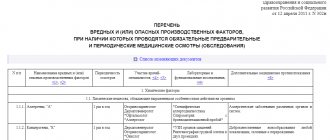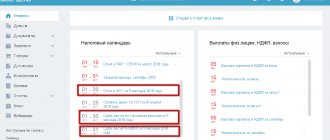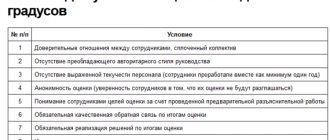- March 5, 2019
- Guides
- Lazareva Valeria
Every aspiring specialist asks the question: what is an internship? This is really relevant, since many employers want to check the competence of a future employee by concluding an employment contract. This allows you to weed out unsuitable candidates immediately without entering into an employment relationship with them. For beginners, this is an opportunity to gain experience.

Peculiarities
For the first time, the role of an intern can be obtained during the period of study at a university or college. Such activities are usually not paid. However, at the same time, the future specialist gains invaluable experience, which in the future allows him to take an attractive vacancy.
In the future, the need for an internship may arise when applying for a job or obtaining a new position in connection with a promotion. In the second case, an internship is carried out if the new responsibilities differ significantly from the previous ones.
The activity may be paid or unpaid depending on the conditions of the particular employer. That is why it is better to find out such conditions in advance in order to avoid misunderstandings and possible conflicts in the future.

What is an internship for?
It is often confused with a probationary period. Since in both cases a certain period is assumed during which the employer checks the competence of a potential employee.
An internship at work is a slightly different type of activity. In addition to testing, it gives the employee the opportunity to acquire new knowledge and skills necessary to perform the duties of their position.
If you don't know what an internship means, you definitely need to fix that. A considerable number of employers in the labor market offer similar activities for beginning specialists, allowing them to gain experience in the vacancy of interest.
However, internships can also be assigned to experienced employees. In this case, they will have to learn some of the subtleties and features of the activities that they will have to engage in at the new place of work.
Pros and cons of internships - is there a “dark side” to practical training?
It is very difficult to highlight the strengths and weaknesses of such an option for advanced training as an internship. The reason is that their content and duration vary greatly, the quality largely depends on the right organization and professional leader.
In any case, the key advantage of any internship is the opportunity for a specialist to master new skills in practice and within a specific time frame and gain new knowledge necessary for work or career advancement.
A general disadvantage of internships is the need for the employee to be temporarily absent from the workplace. Also, if the process of practical training is not organized correctly, incomplete assimilation of skills and knowledge is possible.

It is very difficult to identify the strengths and weaknesses of an internship.
Benefits for the specialist
What is an internship, you now know. Let's discuss in more detail what advantages it brings for both parties.
For a specialist these are the following bonuses.
- Mastering new professional skills. Training in specialized organizations is usually paid. The employee does not pay anything for the internship, and sometimes even receives a salary.
- Application of theoretical knowledge. In various colleges and universities, they usually teach exclusively theory. By going on an internship, a novice specialist gets an excellent opportunity to put previously acquired knowledge into practice.
- Training. If an internship is carried out during the transition from one position to another, the employee learns even more practical skills, increasing his own value in the labor market.
- Opportunity assessment. It is possible that, based on the results of the internship, you will change your mind and decide that the vacancy is not suitable for you and you should look for something else.
- Employment opportunity. An internship is not only a kind of practice for a novice specialist, but also an opportunity to prove oneself well, as well as get a vacant position in a company.

Personal stories of trainees

Stanislav Kondratenko, QA engineer
I started an internship as a QA engineer in March 2021, and on September 1st I joined the staff. Ilya Stefan, my team leader and mentor, created a six-month development plan for me. All trainees have such a plan; it helps them absorb information and understand in which direction they need to move. The first two weeks were devoted only to familiarization with the product, DWH architecture and processes in the integration team.
After each stage I passed exams.
The team helped us prepare: we called the guys and they explained various topics. I recorded these meetings and could refer back to the notes as I prepared. Ilya also supported me along the way, always helping and advising literature. When we went remote due to the pandemic—I had worked for three weeks at that time—the mentor was always in touch. There were no major difficulties in passing the exams. VTB competition - come up with a name for the voice assistant and win an Iphone 12
After the first exams, they began to give me real business tasks. My colleagues who participated in the process helped to correctly describe the test cases, select a test-approach for each individual task, and highlighted details that were worth paying special attention to. Gradually, through practice, I learned the different components of our system. I had a calendar in which I marked the plan for the sprint - that is, for two weeks. I described everything I was doing during this period, and the team lead and I discussed what worked, what didn’t, and what should be done in the next sprint.
Now I work with the integration team and try to participate in all processes related to this area.
ISTQB Foundation Level
In addition to the basic training, Ilya suggested that I take the international exam for testers ISTQB Foundation Level. If you successfully pass the test, the company is ready to compensate for the costs of taking the test. I supported this idea, and they gave me a book for preparation. I made a presentation on each topic and told the theory to my colleagues - experienced testers. The guys shared examples from practice along the way, making it easier to remember. There were some discrepancies between practice and the book: from the point of view of the book, everything is written as it should be in an ideal world, but in reality it is not always possible to follow the processes described there.
Then, before the exam, I re-read the book in English, and some points in Russian, in order to understand them in detail. At the end of November 2020, I successfully passed the exam.

Andrey Vorontsov, Scala Developer
I interned at DINS from March to August 2020. My internship began in the office - it was a masterpiece, I was ready to live there. But a month later the pandemic arrived, everyone was given laptops and sent to work from home.
There was a fear that they would stop paying attention to me, and I would be left alone facing all the difficulties with new and unfamiliar projects. Fortunately, this did not happen. Indeed, you can’t just come up and ask a question remotely, but during an internship a lot of them arise. Waiting for a response in chat is always more difficult and longer.
I really liked that no one rushed me, when I slowed down, everyone was understanding that I was a novice specialist.
Now the main difficulty for me is the lack of communication. I am a very social person, it’s hard for me to sit alone at home. I have to talk to the computer for now.
I had a mentor - team leader Sergei Rublev. He gave tasks and checked them, answered my endless questions, pointed out mistakes, and provided moral support. One day, during a particularly difficult moment, he simply invited me over to play PS4. I am very glad that I came under his wing.
During the internship, I became familiar with the Scala language and its libraries. I had to read a lot: the official Scala documentation, documentation on the cats and cats-effect libraries. I also took courses from the creator of the language on the Coursera platform.
I learned to take full advantage of Git and GitLab, learned Kubernetes from scratch, and even completed some very useful tasks related to the platform. For example, I made information about our services from Kubernetes displayed on an internal web page. This makes it more convenient for our employees to work.
It’s hard to remember everything that I gained through the internship, but those things that I didn’t know before, I now do automatically, without even thinking.
We have an excellent team: imagine, I can write to any person, even someone I don’t know, and he will help me. It's just wonderful. And in a year of work, I have never met with condemnation. If something doesn't work out, they will support you. The main thing is effort and motivation.

Olga Vlasova, QA Engineer
I interned at DINS from June to November 2021. The internship took place remotely. There was a strange feeling, it seemed that this was all unreal: after all, I had never seen my team live. But overall there was a complete feeling of presence: the guys are always in touch, the team and I call each other every day, where almost everyone turns on their cameras, so you can at least look at your colleagues on the screen.
Immersion in work was intense. There are a lot of materials: from local documentation for components to videos about the structure of the product as a whole. The tasks were formulated by Tatyana Abdina, my mentor. She taught me many testing tricks and made it clear in which direction to think, she supported me and was always ready to call me to talk in more detail about an incomprehensible moment. For example, I often showed my screen on calls to make it clearer how to navigate the non-obvious interface. Most often, the mentor and the Scrum Master answered questions, but the guys from the team were always happy to help.
During the internship, I learned how to set up a work environment, use terminal tools to manage remote machines, write scripts to send bulk requests, and understood how to work with Git, Jira, Jenkins. I also improved my skills in testing and creating test documentation.
I remember how happy it was to find the first bug and open a ticket for it.
As soon as you become an intern, you immediately feel like a real employee: you can participate in all company activities, voluntary health insurance is valid, and the internship is paid. Although you have little experience, the team is understanding and ready to spend time on your training.
Benefits for the employer
- Reducing the adaptation period. Knowing what an internship is, it is easy to assume that it is during this period that the employee becomes familiar with all the main responsibilities of the future vacancy. This means that in the future he will need significantly less time to get used to the new position.
- Checking employee competence. Thanks to the internship, the employer receives enough time to assess how ready a potential employee is to perform the functions assigned to him.
- Assessment of theoretical knowledge. An internship, unlike a short interview, provides significantly more time to test a potential employee.
How is the internship going?
This is an important question for those who are already familiar with the essence of the concept.
Initially, the internship is preceded by an interview. Already at this stage, potential employers weed out unsuitable candidates. However, if they are interested in employing a candidate for a vacant position, it is at this stage that an internship is assigned. All its conditions are also discussed. If the candidate is not satisfied with them, he has every right to refuse.

First of all, the employee’s internship is documented. At this stage, it is necessary to discuss whether the activity of the aspiring specialist will be paid or not. As a rule, the remuneration amount is less than the monthly salary that the position requires.
A potential employee is assigned a mentor who will bring him up to speed and monitor the correct completion of assigned tasks.
The duration of the internship must be clearly limited and indicated in the terms of the contract. There should not be a situation in which a potential employer delays announcing his decision for as long as possible.
A sample internship is a pre-developed training program in accordance with which a potential employee is trained for an open vacancy.

Selection and development

Ilya Stefan, team lead and mentor
I am the team leader of the Business Intelligence team. To put it very simply, our team calculates the company’s expected earnings and provides the data in the form of reports.
To join us, the trainee must have a technical education and completed courses in the field of testing. We are looking for candidates who have already worked on some technical projects.
The selection takes place in four stages:
- Interview with an HR specialist.
- Test via Google form.
- Technical interview with team lead.
- An interview with the manager, during which technical and soft skills are tested.
Stages of intern development
For Stas’s release, I drew up a plan for his development, which was divided into 4 stages. To complete each of them there was a deadline and clear instructions for further actions. During his internship, Stas went through several stages of development:
I - Dependent
- I'm talking about the company.
- I give you two weeks to complete the company's mandatory induction courses.
- I tell you what awaits the intern ahead.
II - Interested
- The intern begins to receive assignments. First, something simple so that he can be inspired by his victories.
- I organize lectures where my colleagues and I talk about BI architecture.
- The intern begins to independently interact with other team members and establish communications.
III - Involved
- The intern receives more complex assignments.
- We discuss how one can optimize time for completing tasks, how to act in situations when he does not know where to start, or is not sure what to do correctly.
- I ask the trainee to write down what they learned as a page on the internal wiki.
IV - Self-directed
- At this stage, I give the features to the intern to study independently. At the end he must prepare a test plan or test approach.
- The intern begins giving lectures within teams and sharing knowledge on GIT (a console utility for tracking and maintaining change history) and ISTQB.
ISTQB for Trainee
When I was a junior, my testing knowledge was very fragmented. There was a lack of order - a foundation on which I could further grow as a QA engineer. Two years later, I learned that there are international certificates that were created just to structure knowledge about testing. This is what ISTQB turned out to be for me. When intern Stas joined us, I decided that it would also be useful for him to take this exam, and I offered this opportunity.
The future of the intern
A good trainee should receive as much knowledge as possible from the team at the end of the probationary period. If the trainee successfully completes the probationary period, he begins to improve himself without the fear that he will soon be fired. He has already proven to the team that he is part of it. Today Stas combines the best features of the team. Now he drives us to move on and develop.
When is it held?
There are several different situations in which an internship is relevant.
- Primary employment of recent graduates of various educational institutions.
- Moving an existing employee up the career ladder.
- Long-term absence of an employee, during which there have been fundamental changes in his professional activities.
- Temporary transfer to another position. For example, in cases where the main specialist is absent.
Perhaps there are exceptions to any rule. The internship may not be carried out if the management makes an appropriate decision. As a rule, this option is possible in cases where the specialist has more than three years of experience in similar activities, and the new responsibilities and equipment used do not differ from the previous ones.
Documentation of industrial training and internship
If practical training is planned at the enterprise, to begin it it is necessary to prepare:
- order for conducting training events, including a list of participants;
- program of training events;
- certificates of completion of the training course.
If the internship is planned at an educational institution or in another organization, it is necessary to document the employee’s absence from the workplace for valid reasons with a special order, on the basis of which the accounting department will calculate his average salary.
Special positions
There is a list of positions for which an internship is required. Accordingly, no employee can be exempted from such activities. Such positions include the following vacancies.
- Public transport drivers.
- Positions in which employees face hazardous working conditions.
- Employees using production equipment.
Based on the results of the internship, potential candidates for the vacant position take an exam.

Period
The duration of the internship was previously determined by law, according to which its minimum duration was three days, and the maximum lasted fourteen days.
Currently, the situation for trainees has changed somewhat. Now the duration of such training depends on the head of the department to which new subordinates are recruited.
If a potential candidate has the knowledge and skills required for a vacant position, as well as experience performing duties in a similar position, the internship period ranges from three to nineteen days, excluding weekends.
If a potential candidate does not have such skills, knowledge, or experience, then the internship can last from one month to six months, depending on the order of the head of the department.
If an internship is intended in connection with the transfer of an employee to a higher position, the duration ranges from fourteen to thirty days, depending on the decision made by the management of the company.

Payment issue
An internship, by definition, is a work activity. Accordingly, it must be paid. However, there are different offers on the labor market. In some companies, employees receive purely practical experience without any monetary compensation.
Consider the actions of an employee who is undergoing a paid internship at a company. Even if a few days later the employer refuses to employ a potential candidate, the latter has every right to receive payment for the days spent at the workplace. If the company refuses payment, the trainee has the right to go to court. Especially if the internship was formalized. If you have documents, winning a court case will be easy.
The salary for an intern is set at a lower rate than for company employees. However, it cannot be less than the minimum wage established in the region.
If we are talking about internships for those studying at any educational institutions, such activities are not paid. For the reason that its goal is to allow a novice specialist to gain experience, and not to employ him in a company on a permanent basis.
What is an internship?
An internship involves selecting the most worthy employees from among accepted candidates, or it is required if you intend to get a promotion and succeed in your career. If you have an internship, you should find out what this means at a particular enterprise before signing the contract.
Depending on the goals pursued, internships may include:
- in order to train a newly hired employee in the specifics of work;
- to improve the level of professionalism of already hired company employees, to retrain and improve their qualifications.
Unpaid internships for students at educational institutions deserve special consideration. The student trainee gains experience and puts the acquired knowledge into practice. In the future, the acquired skills will be of undoubted benefit in employment.
It is often held abroad and provides an excellent chance to prove yourself and gain valuable experience.
Working with an internship not only provides a job, but also allows you to learn a lot of new things, which can help during the adaptation period and inclusion in the work process.
In addition to the general classification of work or training internship, it is also divided according to other parameters:
- Mandatory or voluntary internship . If a university student is doing an internship in order to gain skills corresponding to the specialization of the academic course, the procedure is mandatory. If we are talking about interns for optional practice, they talk about voluntary internship.
- Based on the principle of payment, a distinction is made between free and paid internships , when an employee is accepted for a probationary period and sent for additional training. Internship at universities does not provide payment, but it provides invaluable experience in a certain specialization, which will help you get additional points. Beneficially distinguishing the applicant from other candidates.
- Based on the principle of specialization, internships are divided into areas requiring study (teaching practice, archaeological internship, financial, etc.).
- According to the regularity of the internships, internships are divided into quarterly and semi-annual.
- Depending on the location, there are foreign internships or within one’s own country. Foreign internships include options for sending distinguished students through student exchange programs.
The concept of internship covers the scope of mastering new skills in work regulated by the provisions of the job description. It is impossible to get a good specialist upon graduation from a professional educational institution if the student has not completed a sufficient amount of practice. You can get permission to work in hazardous production at a plant only after completing an internship.
When transferred to a new position, the trainee receives those skills that will be useful to him in his work later, and the duration of the period largely depends on the position, the degree of complexity of the work, and other reasons at the discretion of the employer.
Download the Internship Form (39.5 KiB, 508 hits)
Agreement for an unpaid internship with the right to receive a letter of guarantee for subsequent employment (45.0 KiB, 453 hits)
Distinctive features
When hiring, it is necessary to distinguish between the purpose of an internship and a probationary period, since both concepts are applicable when hiring a new employee. The main thing that distinguishes an internship from a probationary period is the organization of training and adaptation to the working conditions established at a particular enterprise provided for by the procedure.
Students need to understand the difference between an internship and a practicum, since the latter is organized without fail during the training of a specific specialization. Unpaid practice involves consolidating acquired knowledge and acquiring primary application skills, including such varieties as student scientific practice.









